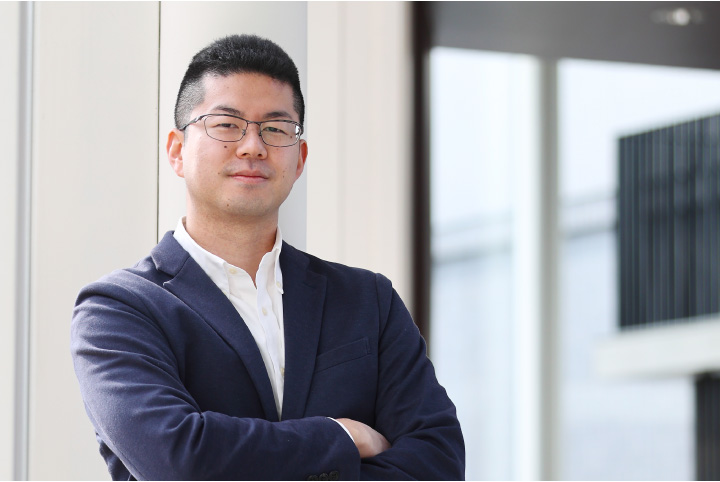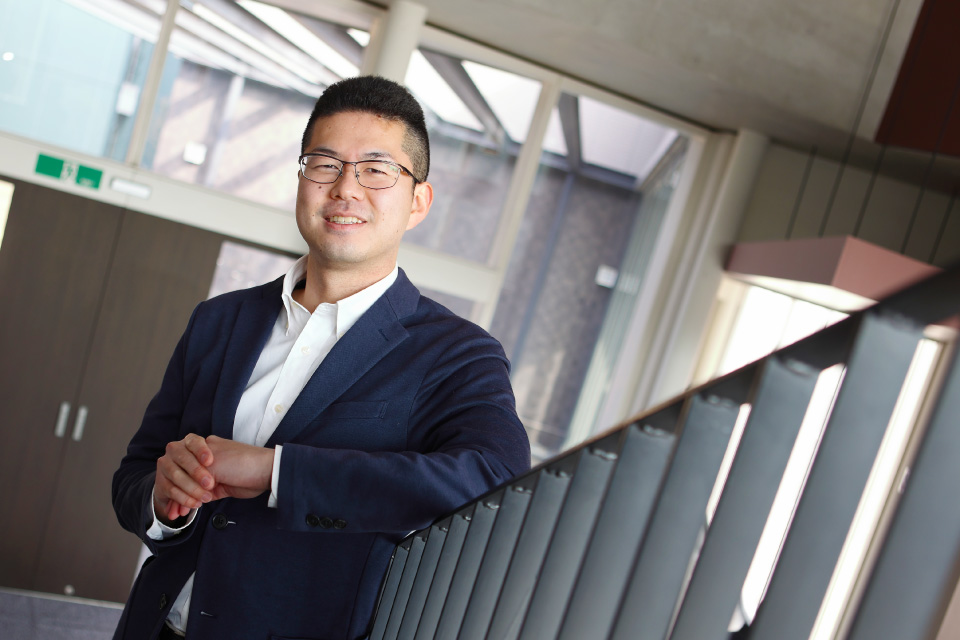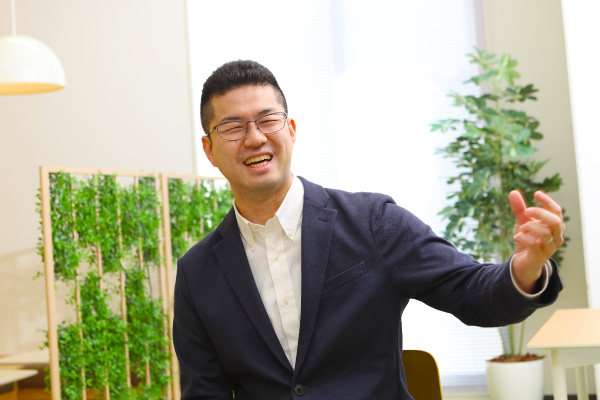Course of System Mathematics,
Department of Information Mathematics
Assistant Professor
Iwasaki Satoru
Was it difficult to change your research and laboratory?
In research that requires physical simulations, meaning research that cannot progress without using instruments for experiments, when a researcher with a certain level of experience transfers with past research results and approaches, it may be necessary to change the instruments and experimental plans for that person, which can have various impacts on the culture and operation of the laboratory. Those who transfer may also feel anxious about whether their research style can be maintained.
However, the information mathematics major does not require experiments that involve physical simulations; the focus is on how to handle subjects mathematically and how to incorporate them into models. As I mentioned earlier, it can be done with just a pen, paper, and a PC. In that regard, accepting new members does not have a significant impact on the research lab. Those transferring can also conduct research in their own style. I have never felt anxious about transferring either.
Another reason I felt reassured was the strong connections between the IPS laboratories at The University of Osaka. Every year, there is a joint presentation event where all five IPS laboratories participate. There, I can learn which members of each lab are working on what kind of research. I look forward to it every year because I gain inspiration and hints from the presentations of each researcher. Understanding the research content of each lab through such opportunities also served as a guideline and reassurance for my decision to transfer.
Since we know each other's faces and research, we often have drinking parties. We hold home parties within the lab or go out to a nearby izakaya. Since my undergraduate days, we often gathered and interacted across lab boundaries. We talk about silly things, but we also discuss research and share life advice among researchers. In such conversations, I receive hints that can be applied to research and motivation to work harder. The many opportunities to inspire each other in daily life are also a reason why I can continue my research healthily.

When did you decide to pursue a career in research?
I have liked numbers since kindergarten and have always engaged enthusiastically with both arithmetic and mathematics. When I started studying physics in high school, I began to see how equations relate to physical phenomena in the real world, and I thought it was interesting to understand the world through differential equations. I continued down the science path and entered the Faculty of Engineering at The University of Osaka. In my first year, I also took courses in chemistry and biology, and I became increasingly interested in how differential equations can be applied to the movement of cells, realizing that mathematics can relate to various phenomena in the world. Going on to graduate school and meeting a respected mentor, as well as participating in the * 'The University of Osaka Humanware Innovation Doctoral Program,' led me to decide to pursue a career as a researcher.
* The University of Osaka Humanware Innovation Doctoral Program:
A program designed to create a networking-type doctoral program with bidirectional feedback, enabling the acquisition of expertise from other fields through close collaboration among the Graduate School of Information Science, the Graduate School of Life Science, and the Graduate School of Fundamental Engineering.










